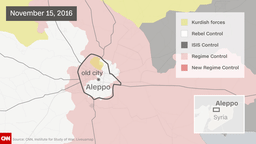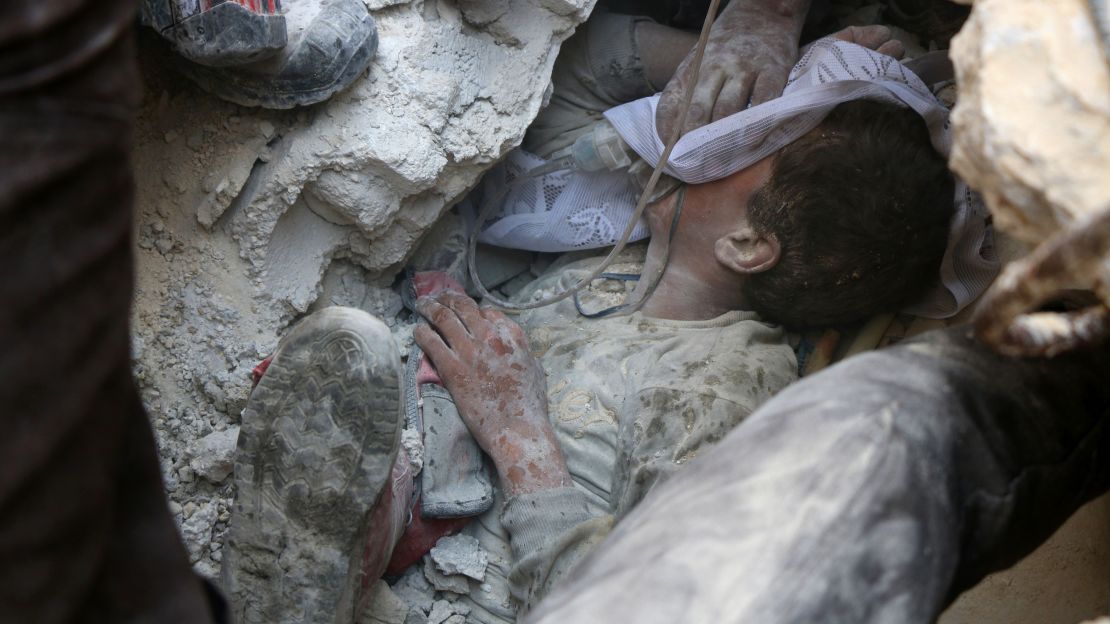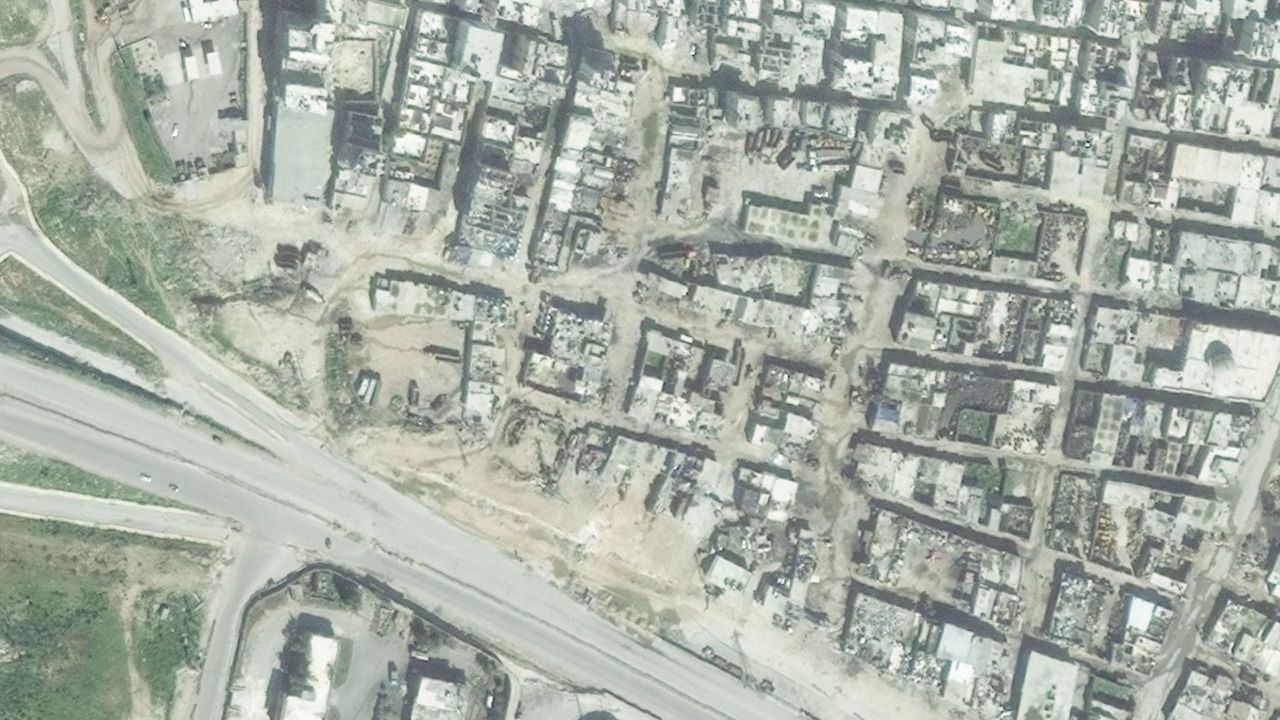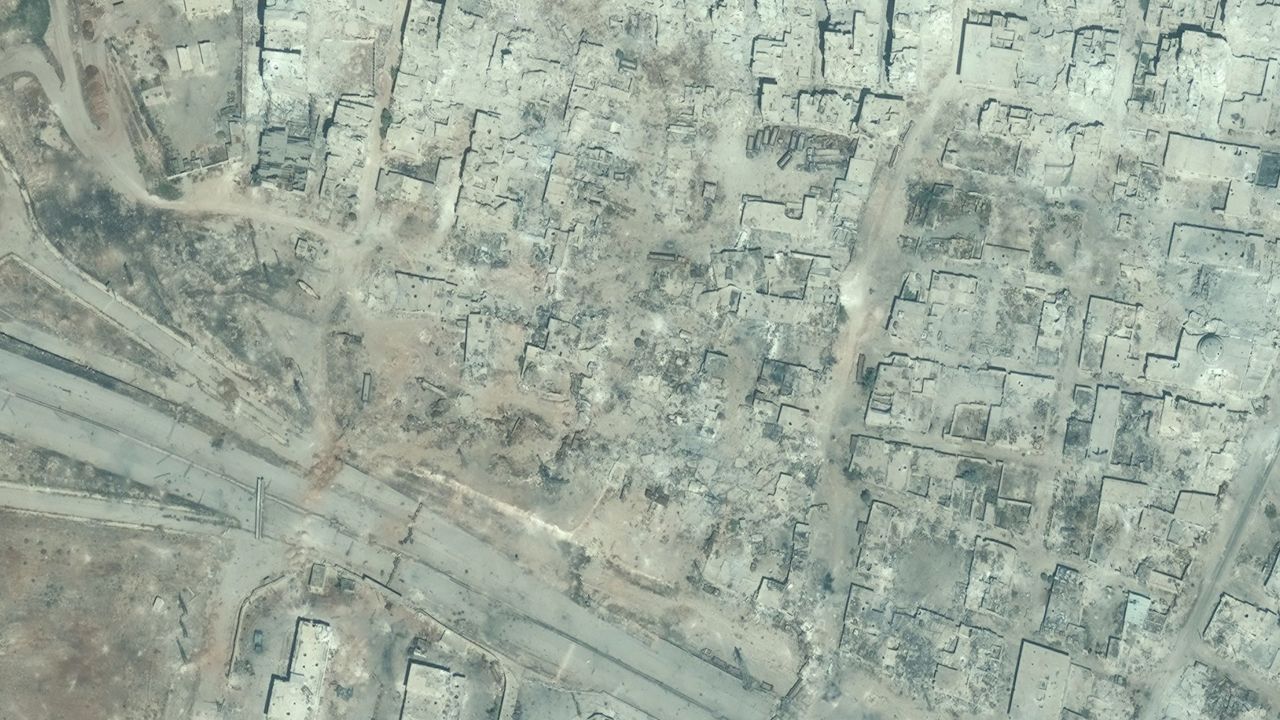Story highlights
NEW: Situation a "race against the clock" to provide evacuees shelter, warmth
NEW: Last civilian evacuees have left eastern Aleppo
Syrian regime now has control of the country's four major cities
The Syrian regime says it has taken full control of Aleppo, state-run media announced Thursday, marking a major turning point in the country’s five-year civil war.
Government forces and their allies now control eastern Aleppo, ending more than four years of rebel rule there.
The battle came from both the ground and sky. President Bashar al-Assad’s troops and supporting militias entered eastern Aleppo by ground in late November. The regime and Russia – its most powerful ally – decimated neighborhoods with airstrikes, leaving scorched earth where a bustling metropolis once stood.

The government already controls western Aleppo. Now, regime control of the east spells the end of the rebels’ last urban stronghold, returning putting the government back in control of the country’s four major cities and making an opposition government less likely.
It’s a major setback for those who have long sought an end to four decades of Assad family rule.
Assad on Thursday called the takeover a “liberation” from terrorists, referring to rebel fighters. For those who survived the yearslong siege, the takeover means a cessation of the near-daily barrage of airstrikes, explosive barrels, artillery, cluster bombs, bunker-busters and bombs loaded with chlorine gas. No one was impervious to the attacks. In many cases, civilians and children were among the thousands killed.
The battle for Aleppo in 20 photos
Now begins a new chapter in Syria’s humanitarian crisis. Those who remain in the city fear reprisals from Assad forces. The last 35,000 civilians and rebels were evacuated from east Aleppo on Thursday, according to the United Nations, which is monitoring evacuations.
They join hundreds of thousands already evacuated to hospitals, homes and shelters. Most of them went to rebel-held areas in the countryside, raising concerns over how to ensure humanitarian aid will reach them and how to prevent those areas from becoming what one UN envoy called “the next Aleppo.”
Others were sent to Turkey, including 7-year-old Bana Alabed, who became a prominent civilian voice through Twitter.
Very few chose to go to western Aleppo, said Jan Egeland, UN senior adviser on Syria.
“It is a race against the clock and against the winter to provide shelter, warmth and relief to people who are sick, exhausted, and malnourished from five years of war,” Egeland said.
Syria: The tragedy of Aleppo continues
How did this all begin?
In 2011, Assad’s forces launched a violent crackdown on activists who were demanding more economic prosperity, political freedom and civil liberties.
The move sparked a nationwide uprising and opposition members took up arms. Members of the military joined the cause, defecting and becoming rebels.
Battle for Aleppo
The rebels took over eastern Aleppo in the summer of 2012, managing to stave off the better-equipped Syrian military. They gained popular support in urban areas.
But as pro-government forces ramped up attacks, eastern Aleppo became the wretched epicenter of the civil war. Hundreds of thousands of residents fled the “apocalyptic” violence.
Since the war began, the regime has claimed it has been fighting “terrorists” – its term for rebel fighters. Eventually, the terror group ISIS took advantage of instability wrought by the civil war and took over swaths of Syria.
How Russia’s playbook transformed the war in Syria
There are four main factions of fighting groups across the country, in addition to rebel fighters: Kurdish forces, ISIS, other opposition (such as Jaish al Fateh, an alliance between the Nusra Front and Ahrar-al-Sham) and the Assad regime.
On Thursday, Assad declared a victory not just for Syria but for all those backing his fight, particularly Iran and Russia.
“It is also a relapse for all the countries that are hostile towards the Syrian people and that have used terrorism as a means to realize their interests,” Assad said, according to state news agency SANA.
A staggering humanitarian crisis
The war triggered one of the greatest humanitarian crises since World War II. The United Nations General Assembly voted on Thursday to establish an independent panel to assist in the investigation of possible war crimes or crimes against humanity in Syria.
An estimated 400,000 Syrians have been killed and more than 4.8 million have fled the country since the war began in 2011, according to the United Nations.
Those who remained suffered from a lack of the most basic needs – food, water, and health care.
Battle for Aleppo: Full coverage
It was a common tactic of the regime, “Starve or Surrender,” one that was used in Homs and then Aleppo.
As the government choked off the supply of food, fuel and other daily necessities, no one was spared: men, women, children, civilians, rebels.
The world saw images of children dying of starvation. Children in hospitals, shell-shocked and covered in blood and debris. People heating plastic from broken chairs and pipes and turning it into fuel.
As shelling and bombardments intensified, people stayed home from school and work to avoid becoming a casualty. Eventually, there was no escape as the airstrikes came to them.
Entire blocks of buildings were reduced to rubble, often with people trapped inside. Homes, hospitals, schools, bakeries.

Nowhere was the devastation more rampant than Aleppo, once the beating heart of the country. In five years it went from a bustling metropolis of more than 2 million people – about the size of Houston – to a devastated war zone.
Throughout the siege, rebels, aid workers and civilians issued one desperate plea after another through videos and social media. They directed them at foreign governments and leaders, the UN Security Council, the public, asking for humanitarian aid and safe passage.
Toward the end, they simply asked for signs that anyone was listening.
“Dear world, why are you silent?”
“Don’t look back years from now and wish that you can do something; you can still.”
“Please please please make this ceasefire work and get us out now. We are so tired.”
CNN’s Merieme Arif, Sarah Faidell, Sheena McKenzie, Nick Paton Walsh and Angela Dewan contributed to this report.



















































































